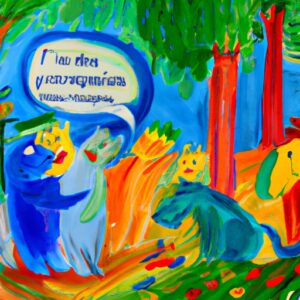What are if clauses?
If clauses are those sentences that mention a condition introduced by the word if. This clause is usually followed, or preceded, by a consequence.
Let’s have a look at an example of an if clause for you to understand better: If you came here, we could do something together.
As you can see, there is a condition (the clause introduced by if) and a consequence (the other clause).
In today’s lesson, we’re going to focus on the Italian if clause type 3 that is also known as periodo ipotetico dell’impossibilità.
What is the if clause type 3 in Italian?
We use this type of if clause when the condition is impossible of coming true because we refer to an event that should have happened in the past.
In other words, this type of if clause expresses an impossible hypothesis: something in the past and it’s consequence that can’t happen anymore.
Here’s an example of an if clause type 3:
Se mi avessi ascoltato, avresti fatto la cosa giusta.
If you had listened to me, you would have done the right thing.
How to use the if clause type 3?
In the case of an impossible hypothesis, we use the congiuntivo trapassato (past perfect subjunctive) in the clause expressing the condition (the one starting with se) and the past conditional in the clause expressing the consequence.
This is the structure:Se + congiuntivo trapassato + past conditional.
If you don’t remember or if you just don’t know how to form the congiuntivo trapassato or the past conditional, keep reading the next two sections.
If you don’t need to review this, you can skip to the section with examples.
How to form the congiuntivo trapassato in Italian?
We use the congiuntivo trapassato to formulate a hypothesis in the past. That’s why we need it in this type of construction when we want to talk about a consequence in the past.
The congiuntivo trapassato is a compound tense, which means it’s made up of two separate verbs: the auxiliary verb essere or avere in imperfect subjunctive and the main verb in the past participle.
Here are the conjugations of avere and essere in the imperfect of the subjunctive:
| io avessi | io fossi |
| tu avessi | tu fossi |
| lui/lei avesse | lui/lei fosse |
| noi avessimo | noi fossimo |
| voi aveste | voi foste |
| loro avessero | loro fossero |
Here’s a tip for you, in case you don’t remember:
- Avere is followed by most verbs, such as comprare (to buy), mangiare (to eat), leggere(to read).
- Essere is followed by the verb essere and stare, in addition to movement and reflexive verbs.
Past participles are those words that end in -ato, -uto, and -ito, such as mangiato, saputo, and dormito.
These are some irregular past participles:
- chiesto (asked)
- detto (said)
- fatto (done)
- stato (been)
- venuto (come)
- visto (seen)
And here are some examples. Note that, for practical reasons, they’re not complete sentences but isolated phrases:
Se avessi mangiato…
If I had eaten…
Se avessimo visto…
If we had seen…
Se fossi andata…
If I had gone…
Se foste venuti…
If you had come…
As you can see in the examples above, the past participle of the verbs that go with essere agree in number and gender with the subject.
What is the past conditional?
We use the past conditional to express an outcome in the past that didn’t happen. That’s why we use it together with the clause introducing the condition in the past.
Here’s the structure of the past conditional: avere or essere in the present conditional + past participle.
Here are the conjugations of verbs avere and essere in the past conditional:
| io avrei | io sarei |
| tu avresti | tu saresti |
| lui/lei avrebbe | lui/lei sarebbe |
| noi avremmo | noi saremmo |
| voi avreste | voi sareste |
| loro avrebbero | loro sarebbero |
Here are some examples. Again, they’re not complete sentences:
Avrei mangiato
I would have eaten
Avrebbe voluto
She would have wanted
Saremmo andati
They would have gone
Sarei venuta
I would have come
Practice with Quizlet
Here's a set of flashcards and quizzes to practice this grammar topic.If clause type 3: examples
Let’s have a look at some more examples with a condition in the past and an outcome that didn’t happen:
Se mi avessi detto la verità, ti avrei creduto.
If you had told me the truth, I would have believed you.
Se avessi saputo che venivi, avrei preparato qualcosa da mangiare.
If I had known you were coming, I would have prepared something to eat.
Se avessimo avuto un aereo privato, avremmo girato tutto il mondo.
If we had had a private plane, we would have gone all around the world.
Se fossi venuta al concerto con noi ieri sera, ti saresti divertita.
If you had come to the concert with us last night, you would have had fun.
Se fossimo andati in centro, li avremmo incontrati.
If we had gone downtown, we would have met them.









